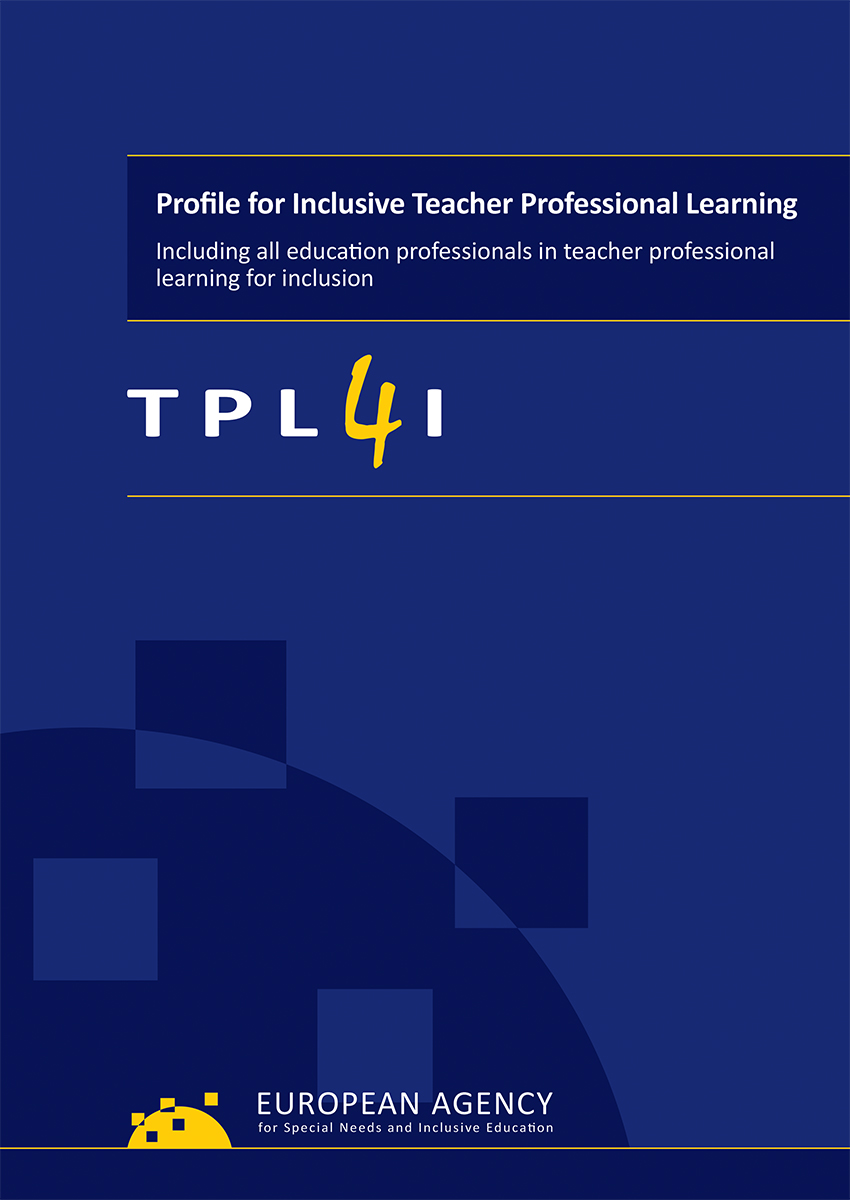The Agency has published a Profile for Inclusive Teacher Professional Learning, which presents a framework for inclusion for all education professionals. It describes the essential features of professional learning for all education professionals working in inclusive education.
The final output from the Teacher Professional Learning for Inclusion (TPL4I) project, the new Profile is the result of several TPL4I activities, including an analysis of policies in 26 Agency member countries and a conceptual working paper. A survey, focus groups and workshops explored existing frameworks used by different education professionals (teachers at different points of their careers and others). They examined the relevance of the core values and areas of competence in these existing frameworks, including the Agency’s 2012 Profile of Inclusive Teachers. Participants also discussed the potential use of a profile for inclusive teacher professional learning at different levels – professional, school, community and policy.
The resulting Profile presents a new framework of core values and areas of competence. It outlines the attitudes, knowledge and understanding considered essential for all education professionals working in or towards inclusive education at all levels of the education system. In particular, it highlights collaborative professional learning at the school and community levels as a crucial way to develop team agency for inclusion.
In response to questions raised in the conceptual working paper, the Profile also identifies the key features of professional learning that facilitate inclusive education. It describes the importance of examining existing frameworks to ensure they meet the essential requirements of professional learning for inclusion, and illustrates opportunities for professional learning for inclusion at all levels of the education system.
The Profile is available to download as a PDF on the Agency website. The framework of core values and areas of competence, which is central to the Profile, is also available as a separate Word document. This can be used to develop or align national frameworks for inclusion, and will be translated later this year into all Agency member country languages.

